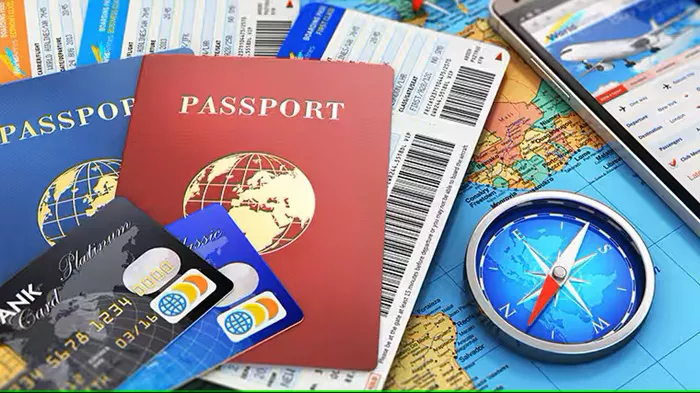The ongoing COVID-19 pandemic has reshaped the way we travel, making it more crucial than ever to secure comprehensive travel insurance that specifically covers COVID-19 related issues. Understanding the costs, coverage specifics, policy limits, claim processes, and potential exclusions can help travelers make informed decisions and ensure they are adequately protected during their holidays. This article provides a detailed look into COVID-19 holiday insurance, addressing cost details, coverage specifics, policy limits, claim processes, exclusions, additional benefits, and frequently asked questions.
Cost Details
The cost of COVID-19 holiday insurance varies widely depending on several factors such as destination, length of trip, age of the traveler, and the coverage limits chosen. On average, COVID-19 travel insurance can range from $50 to $200 for a week-long trip, but this can increase significantly for longer trips or higher coverage limits.
Destination: Traveling to countries with higher healthcare costs, such as the United States, can result in higher insurance premiums. Conversely, destinations with lower healthcare costs may offer more affordable insurance options.
Length of Trip: The duration of the trip also impacts the cost. A longer stay will typically require a higher premium to ensure coverage throughout the entire period.
Coverage Limits: Policies with higher coverage limits for medical expenses and trip cancellations will generally cost more. For instance, a policy covering up to $500,000 in medical expenses will be more expensive than one covering $100,000.
Coverage Specifics
COVID-19 holiday insurance is designed to cover a range of issues related to the pandemic, ensuring travelers are protected against unforeseen disruptions and health-related expenses. Key areas of coverage typically include:
Medical Expenses: Coverage for medical treatment if the traveler contracts COVID-19 while abroad. This can include hospitalization, medication, and doctor’s fees.
Trip Cancellation: Reimbursement for prepaid, non-refundable travel expenses if the trip is canceled due to the traveler contracting COVID-19 before departure.
Trip Curtailment: Compensation for the unused portion of the trip if it needs to be cut short due to the traveler contracting COVID-19 or mandatory quarantine.
Quarantine Costs: Coverage for additional accommodation and subsistence costs if the traveler is required to quarantine while on their trip.
see also: What Holiday Insurance Do I Need
Policy Limits
Policy limits for COVID-19 holiday insurance can vary significantly between providers. These limits outline the maximum benefits payable under the policy for various types of claims.
Medical Expenses: Policies can offer coverage ranging from $100,000 to $500,000 or more for COVID-19 related medical expenses.
Trip Cancellation and Curtailment: The limits for trip cancellation and curtailment can also vary, with some policies covering up to the total cost of the trip and others capping it at a specific amount, such as $10,000.
Quarantine Costs: Limits for quarantine costs are generally lower, typically covering a fixed daily amount (e.g., $150 per day) for a specified number of days (e.g., up to 14 days).
Claim Process
Filing a claim for COVID-19 related issues involves several steps and requires specific documentation to support the claim. The claim process generally includes the following:
Notification: Inform the insurance provider as soon as possible if you need to make a claim. This can often be done online or via a customer service hotline.
Documentation: Collect and submit required documentation, which may include:
- Medical certificates confirming the COVID-19 diagnosis.
- PCR test results.
- Isolation or quarantine orders from health authorities.
- Receipts for medical expenses, additional accommodation, or other costs incurred.
Claim Form: Complete a claim form provided by the insurance company, detailing the nature of the claim and the expenses incurred.
Submission: Submit the completed claim form and supporting documentation to the insurance provider for review.
Processing: The insurance company will review the claim and, if approved, will process the reimbursement according to the policy terms.
Exclusions
It is important to be aware of potential exclusions that may limit the coverage provided by COVID-19 holiday insurance. Common exclusions include:
Pre-existing Conditions: Some policies may not cover COVID-19 related claims if the traveler had been diagnosed with COVID-19 prior to purchasing the insurance.
Vaccination Requirements: Failing to meet mandatory vaccination requirements set by the destination country or the insurance provider may result in denied claims.
Non-compliance: Claims may be denied if the traveler did not comply with local health guidelines or travel advisories.
Government Actions: Costs incurred due to government-imposed travel bans or mandatory quarantines not related to a COVID-19 diagnosis may not be covered.
see also: How Much Is Holiday Insurance?
Additional Benefits
Some COVID-19 holiday insurance policies offer additional benefits to enhance the traveler’s coverage and provide extra peace of mind. These benefits can include:
Insurance Period Extensions: Automatic extension of the policy period if the traveler is unable to return home due to COVID-19 related issues.
Daily Hospital Cash Allowances: A daily cash allowance for each day the traveler is hospitalized due to COVID-19, to cover incidental expenses.
Telemedicine Services: Access to telemedicine consultations with healthcare professionals, which can be particularly useful if medical facilities are overwhelmed.
Repatriation: Coverage for medical evacuation and repatriation if the traveler requires specialized medical treatment or needs to return home.
Conclusion
COVID-19 holiday insurance is a crucial consideration for travelers in the current global climate, offering protection against medical expenses, trip cancellations, and other disruptions caused by the pandemic. Understanding the cost details, coverage specifics, policy limits, and potential exclusions can help travelers choose the right policy to meet their needs. Additionally, being familiar with the claim process and the extra benefits provided by some policies can further ensure a smooth and secure travel experience. Always consult with insurance professionals or brokers to navigate the complexities and select a policy that offers comprehensive coverage for your specific travel plans.
FAQs about Travel Insurance for Hong Kong and Beyond
1. Can I buy travel insurance after departure from Hong Kong?
Yes, it is possible to buy travel insurance after departure from Hong Kong. However, options may be limited, and the coverage might differ compared to purchasing a policy before departure. Some insurance companies offer post-departure travel insurance, but it’s essential to read the policy details carefully to understand what is covered and any potential exclusions.
2. Is travel insurance mandatory for Hong Kong?
Travel insurance is not mandatory for entry into Hong Kong. However, it is highly recommended. Travel insurance can provide coverage for medical emergencies, trip cancellations, lost luggage, and other unforeseen events that might occur during your trip. Given the high cost of healthcare and potential travel disruptions, having travel insurance can offer peace of mind and financial protection.
3. Can I buy travel insurance after departure?
Yes, you can buy travel insurance after departure, but the availability and coverage may vary by insurer. Some insurance companies offer policies specifically designed for travelers who have already left their home country. These policies may have certain limitations and exclusions, so it’s crucial to review the terms and conditions thoroughly before purchasing.
4. Does travel insurance cover flights already booked?
Travel insurance can cover flights already booked if you purchase the insurance before any issues arise with your travel plans. Coverage typically includes trip cancellation, trip interruption, and trip delay, which can reimburse you for non-refundable expenses if you have to cancel or interrupt your trip for covered reasons such as illness, injury, or unforeseen events.
You Might Be Interested In





















